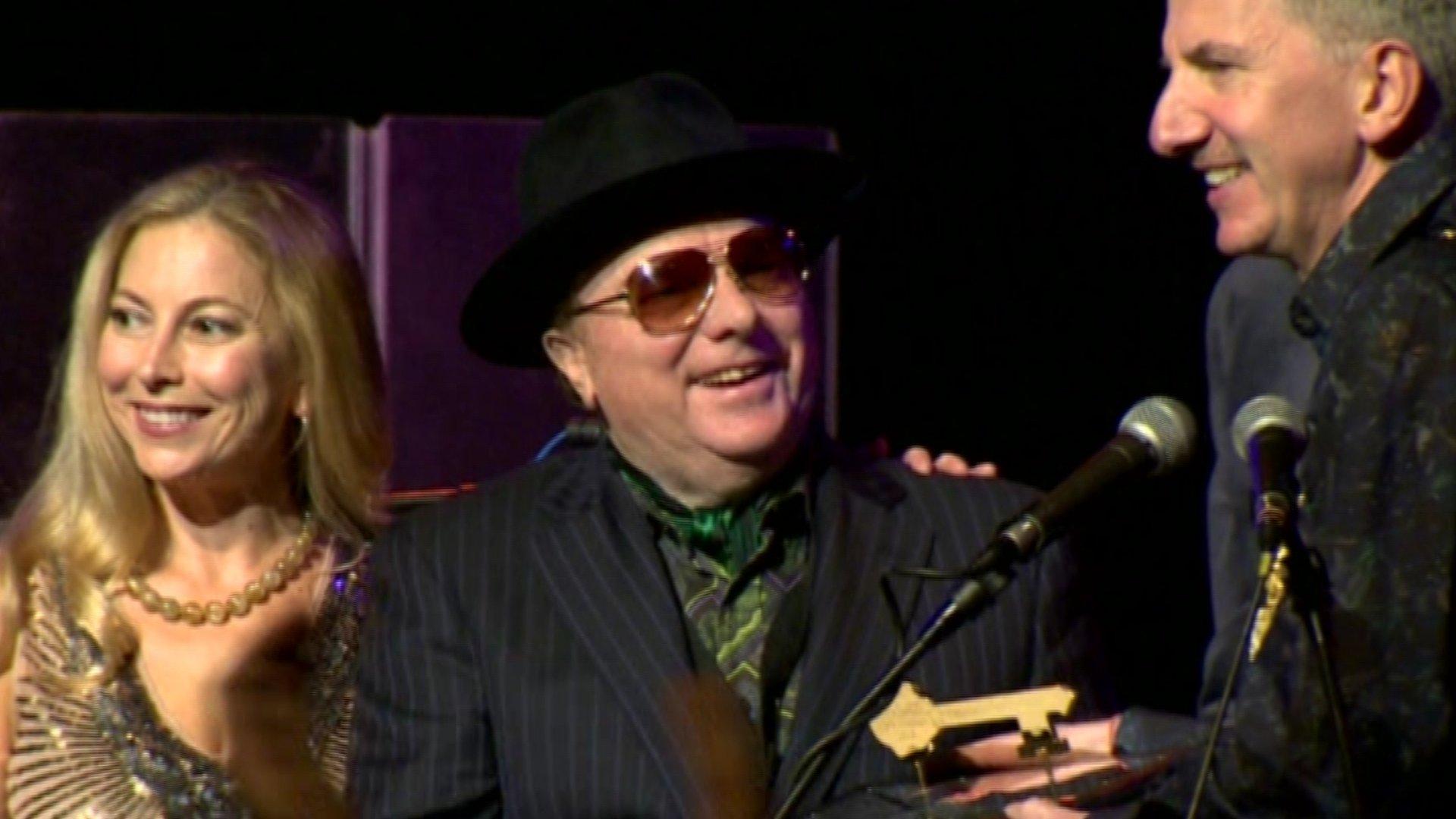Here comes the knight: Van Morrison's knighthood caps career for visionary singer
- Published
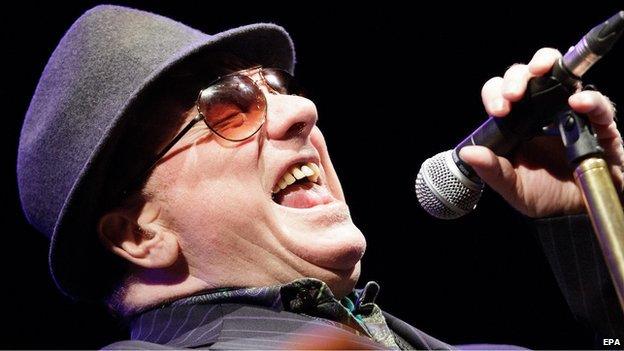
Van Morrison has been honoured for his services to music and tourism in Northern Ireland
"Take me back, take me way, way, way back," Van Morrison whispers at the beginning of On Hyndford Street.
That's where it began, on a working-class Belfast street, with his father's classic jazz and blues records ringing through the red-brick terraced house in the east of the city.
Now, more than 50 years on from his first recordings and two months shy of his 70th birthday, a knighthood in the Queen's honours caps a career that has seen the singer achieve the rare double of consistent commercial success and widespread adulation from the critics.
An enigmatic figure, Morrison has always taken shelter from the spotlight.
Van Morrison played three concerts at Orangefield High
It was typical, as a man of precious few words, that he offered little to the press in reaction to his latest, and possibly greatest, honour.
"Throughout my career I have always preferred to let my music speak for me," he said.
"It is a huge honour to now have that body of work recognised in this way."
Breakthrough
His music does indeed speak volumes.
Impossible to define, he has managed to blend blues, country, soul, jazz and Celtic folk with evocative lyrics that have earned him comparisons with some of Ireland's greatest poets.
His songs are unique products of his home city and the music he absorbed as a child - Hank Williams, Muddy Waters and Lead Belly he cites as major influences.
Morrison left school at 15 without qualifications, taking a job as a window-cleaner as he sang in various bands in Belfast.
The breakthrough was fronting and playing saxophone with his first band Them and the gigs they played at the city's long-since-gone Maritime Hotel, where their garage-rock and dirty R'n'B became a sensation.
Their hits included Baby Please Don't Go, Here Comes The Night and Gloria, but Morrison was destined for solo stardom.
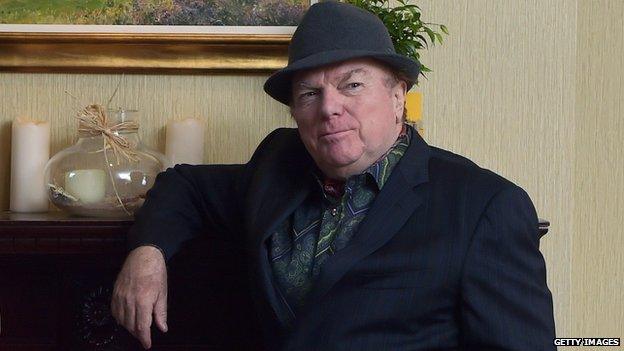
Van Morrison has achieved the rare feat of combining commercial success with enduring critical acclaim
He broke away from the band, and in 1967 Brown-Eyed Girl, perhaps his most celebrated song, reached number 10 in the United States.
From there, his career began its upward spiral.
Spiritual
Astral Weeks followed in 1969, a jazz-and-strings album regularly cited as one of the finest records of all time, and that set the standard for the rest of his career.
He was prolific during the early-1970s, releasing Moondance, Tupelo Honey, St Dominic's Preview and Veedon Fleece among others, and his soulful, formidable live sets meant he quickly became a performer sought after around the world.
As his career moved into the 1980s and 1990s, Morrison's music adopted a more mystical, spiritual quality.
Van Morrison became the 79th recipient of the freedom of Belfast, as Mark Simpson reports
His 1995 release Days Like This became an iconic song of peace in the context of the troubled past of his native Northern Ireland.
Record after record followed throughout the 2000s and into the current decade as he dabbled with skiffle, country and other genres, before reworking his classics on a recent album of duets.
Morrison, whose knighthood is for services to the music industry and tourism in Northern Ireland, has a reputation for being grumpy and discontent.
In 1993, for example, he was inducted into the Rock and Roll Hall of Fame but declined not to turn up to the ceremony.
Passion
He admits he has not worn his fame easily, and his relationship with the music industry and the media has often been a frosty one.
But his standing as one of the most visionary and talented artists of his generation has grown as the decades have passed.
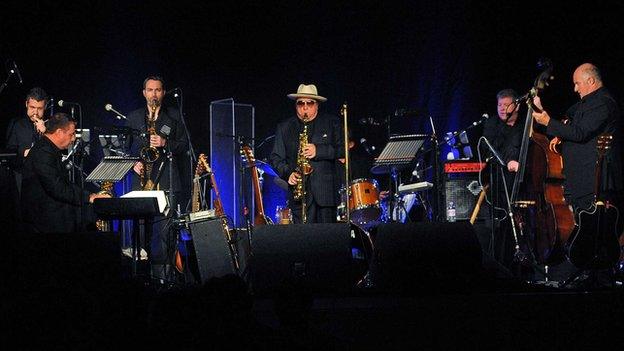
Van Morrison continues to write and perform regularly as he approaches his 70th birthday
Musicians as diverse as Bruce Springsteen and Ed Sheeran say Morrison's extensive catalogue of over 360 songs has influenced them.
Morrison turns 70 in August, and to mark that milestone he will play two concerts on Cyprus Avenue, the tree-lined Belfast street that lends its name to one of his best-loved songs.
Even as he moves into his eighth decade, he is showing no signs of slowing down or losing his fire and passion for the music.
Perhaps, as he sings on Into The Mystic, it's too late to stop now.
Related topics
- Published13 June 2015

- Published12 June 2015
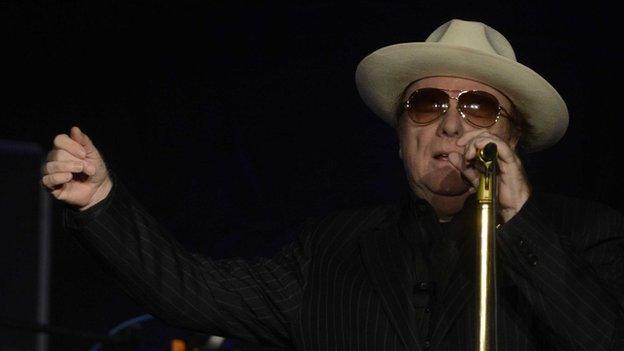
- Published22 August 2014
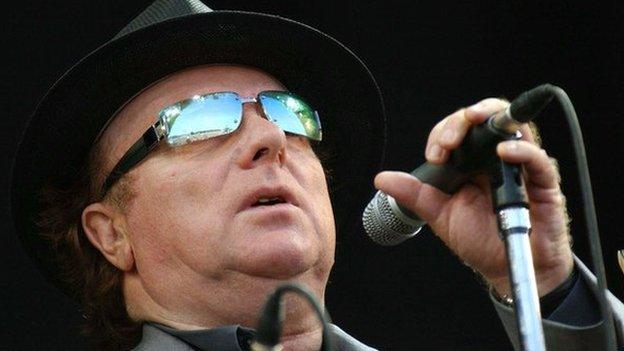
- Published15 November 2013
- Published15 November 2013
